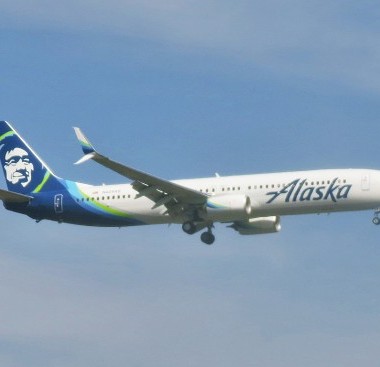Spirit CEO says pandemic losses pushed it to JetBlue merger
Spirit Airlines Inc.’s top executive told a judge that the low-cost carrier suffered years of pandemic-fueled losses that show no signs of ending, which pushed the company into a merger with JetBlue Airways Corp. that the US government now wants to prevent.
Higher costs for fuel, labor and maintenance compounded the impact of the loss of travelers after the Covid-19 outbreak, and Spirit is on track for its fourth consecutive annual loss, Chief Executive Officer Ted Christie testified Wednesday during the second day of an antitrust trial in Boston. “We’re expecting it to continue to get worse into 2025,” he said.
Spirit’s share of the domestic airline market is “relatively insignificant” at under 3%, even after more than a decade of rapid growth, Christie said. Company executives hoped that accepting a $3.8 billion offer from JetBlue last year would create a company that could compete with the four top carriers, which get 80% of ticket revenue, he said.
“What we’re really trying to do is establish a fifth viable competitor in what is a very dominant space by the big four airlines and in order to do that you have to gain scale,” the Spirit CEO said. JetBlue is the sixth-largest domestic carrier and Spirit is the seventh-largest.
While still ranking well behind behemoths like Delta Air Lines Inc. and American Airlines Group Inc., a bulked-up JetBlue would leapfrog Alaska Airlines to become the fifth-largest carrier in the US.
The US Justice Department sued last year to block the deal it says would kill JetBlue’s fastest growing competitor in the US and limit choices for passengers, especially in the market for ultra-low-cost air travel. It’s the latest effort to crack down on airline consolidation after decades of lax enforcement.
But Christie said the Spirit-JetBlue combination won’t hurt the market the way the government claims, because “the dynamics of the industry have changed.”
While Spirit helped to popularize the “unbundled” pricing model — tickets with extra fees for things like carry-on bags or snacks — many other airlines now offer that option, Christie said.
“Larger airlines are more effectively competing for our type of product,” which is significantly impacting Spirit’s bottom line, he said.
Still, a merger with JetBlue raised concerns among Spirit executives when it was first proposed. Christie and others were worried the deal wouldn’t get approved by federal regulators, mostly because of JetBlue’s alliance with American Airlines, which was dissolved after a federal judge agreed with antitrust enforcers that the alliance would reduce competition and boost fares for consumers.
But “there was a path by which we could see engaging in a transaction with JetBlue, and we outlined to JetBlue that path,” which included a stronger commitment to make significant divestitures, Christie said.
The federal government argues that the proposed divestitures, which include slots and gates in New York and Boston, don’t go far enough to restore competition lost in the deal.
DOJ lawyer Aaron Teitelbaum questioned Christie about Spirit’s plans for growth after the pandemic, asking whether executives made a strategic misjudgment to continue growing despite uncertainty in the industry.
“Slower growth would have been more ideal during and coming out of the pandemic,” Christie said. “It looks like we probably outgrew the opportunity right now.”
The trial is being heard by US District Judge William Young without a jury, which means he’ll be the one to decide whether the sale should be permitted to proceed.
The case is US v. JetBlue, 23-cv-10511, US District Court, District of Massachusetts (Boston).
Similar Stories

Lufthansa Cargo and Maersk launch cooperation to support decarbonization of airfreight
View ArticlePort Authority of New York and New Jersey airports see spookily spectacular surge in October
Port of New York and New Jersey surpasses 700,000 TEUs for eighth consecutive month
View Article
airBaltic Cargo partners with cargo.one to accelerate and enhance its digital sales
View Article
Chapman Freeborn agrees partnership with Portuguese multimodal logistics specialist
View Article
Cathay is ready for the commissioning of the three-runway system at Hong Kong International Airport
View ArticleUnited Airlines Holdings Inc. upgraded To ‘BB’; outlook stable
• United Airlines Holdings Inc. is on track to generate credit measures in line with our previous upside rating threshold this year, and we expect improvement in 2025. • The…
View ArticleGet the most up-to-date trending news!
SubscribeIndustry updates and weekly newsletter direct to your inbox!





